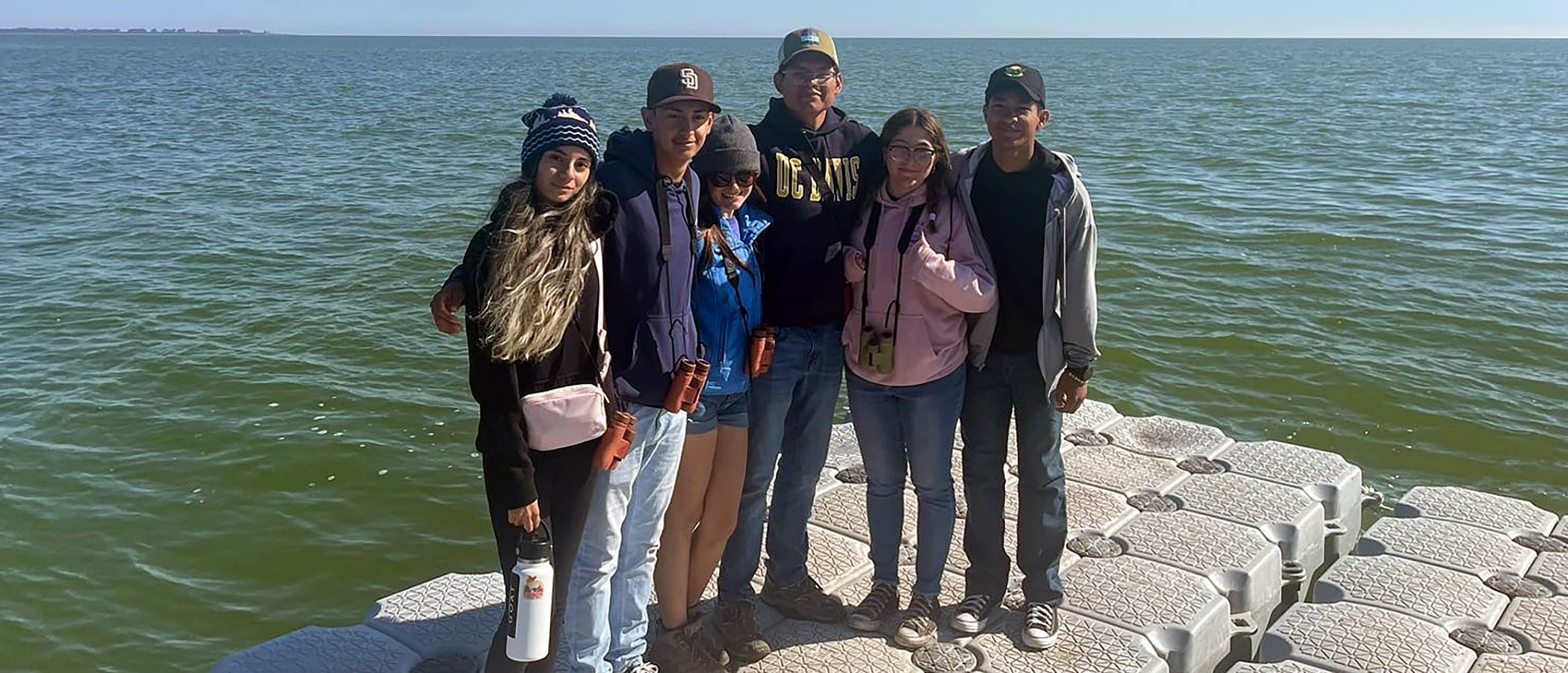
After a successful exchange in the Mono Basin between youth from Laguna Mar Chiquita and Mono Lake, the Experience Ambientalia international exchange continued as the students from Mono Lake traveled to Laguna Mar Chiquita to reconnect with their peers in Argentina.
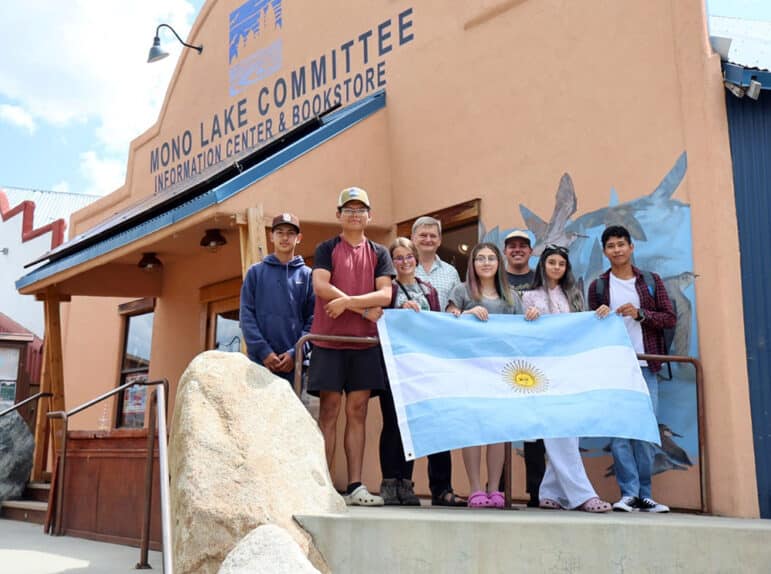
Over the last eleven months, students on both sides of the hemisphere have been doing concurrent environmental stewardship and educational activities at Mono Lake and Laguna Mar Chiquita. By celebrating World Coastal Clean-Up Day, World Migratory Bird Day, Duck Days, and World Wetlands Day; discussing the Wilson’s Phalarope Endangered Species Act petition; and participating in the Intermountain West Shorebird Survey, students from Argentina and Lee Vining have combined to put in hundreds of volunteer hours in preparation for an international exchange dedicated to saline lake education and conservation.
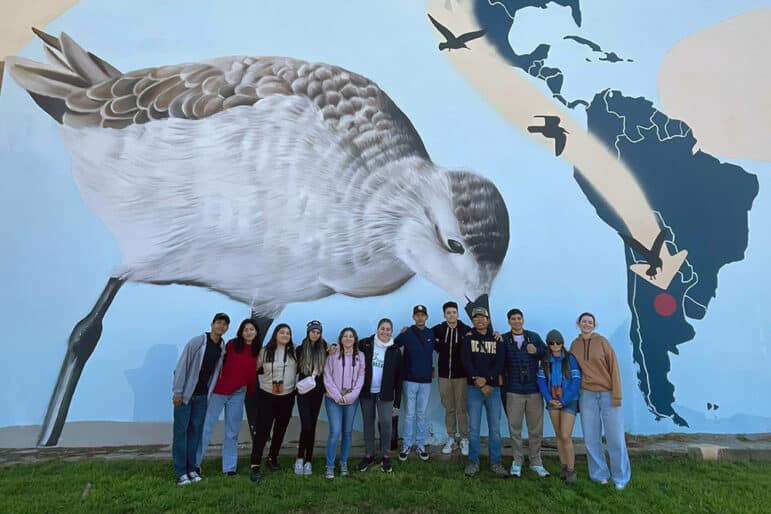
July 15–23 the second part of this exchange occurred. Six students, one teacher, and two Mono Lake Committee staff members went to Laguna Mar Chiquita and communed with students, teachers, and Fundación Líderes de Ansenuza (FLA) staff members in Miramar, Argentina, a town on the shore of Laguna Mar Chiquita.
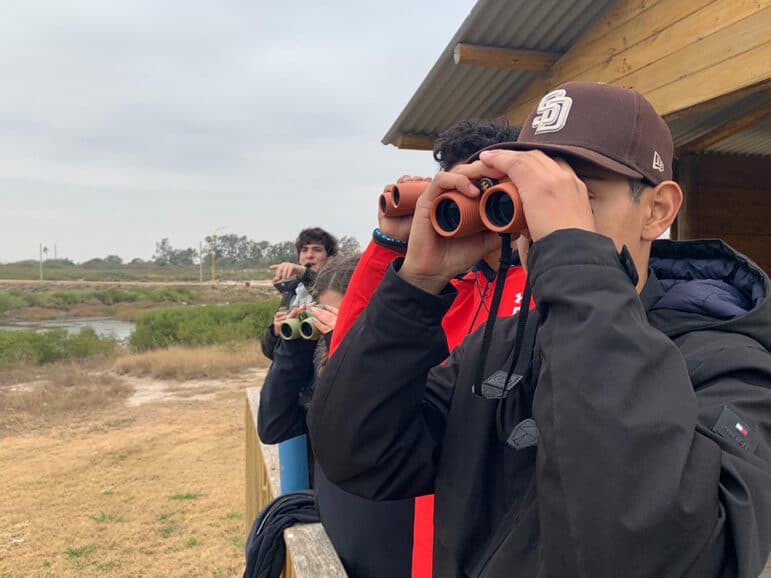
During this week, the students participated in activities and workshops and visited different communities in the region. During these events, students learned intimately the similarities and differences between Laguna Mar Chiquita and Mono Lake. For instance, students learned about the grand scale of Laguna Mar Chiquita and its tributary streams relative to the comparatively small Mono Lake and its streams—you can fit 14 Mono Lakes in Laguna Mar Chiquita!
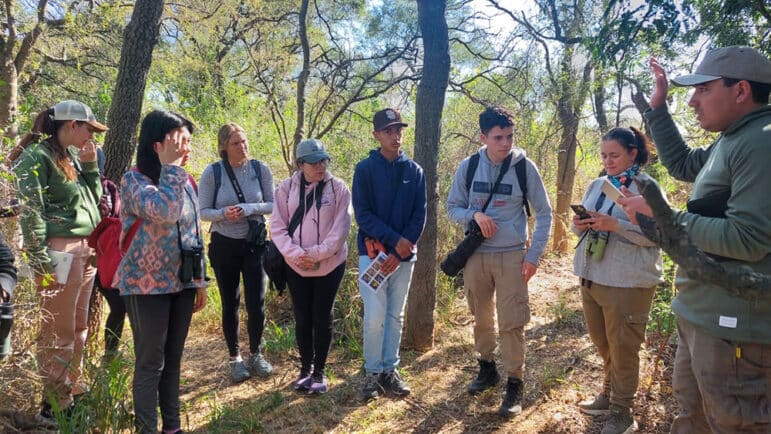
Additionally, they learned about the complexities of the issues facing the health of the streams in Argentina, which are being diverted at an unregulated rate by numerous parties, while cities and towns are contaminating the water by disposing of sewage into the streams. In contrast, at Mono Lake there is no serious contamination issue of the water and principally, there is only one agency diverting the freshwater streams entering Mono Lake: the Los Angeles Department of Water & Power.
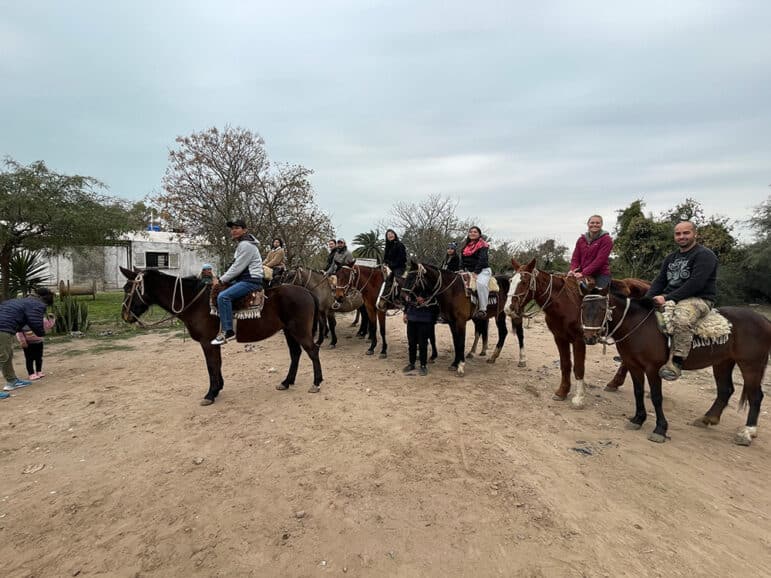
An unsurprising similarity between these two systems is the commitment of the local people, and particularly young people, dedicated to restoring and conserving their home lakes and streams. Youth from Mono Lake were introduced to young peers and a slew of environmental advocates dedicated to making a difference. These people, their work, and their speeches were inspiring. Through these speakers and presentations, students learned about the ecological restoration of Rancho Viejo, a ranch-turned-wildlife sanctuary for maned wolves, pumas, and birds, the recycling initiatives of the town of La Para, the installation of Motus towers to monitor wildlife on Laguna Mar Chiquita, a coalition of young advocates working to clean the streams flowing into Laguna Mar Chiquita, and more.
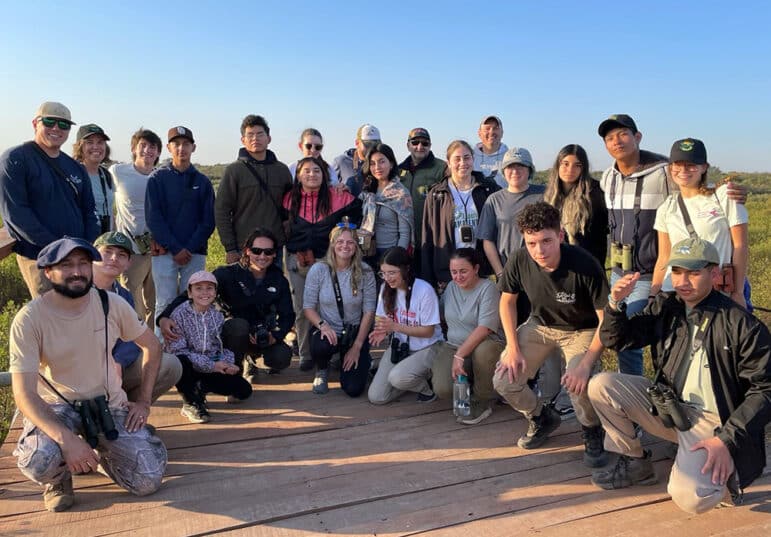
Beyond the invaluable environmental educational components of the trip, students were also immersed in Argentina’s culture. They went on a boat tour of Laguna Mar Chiquita where they saw flamingos and danced to reggaetón, rode horses, and ate traditional empanadas and asado.
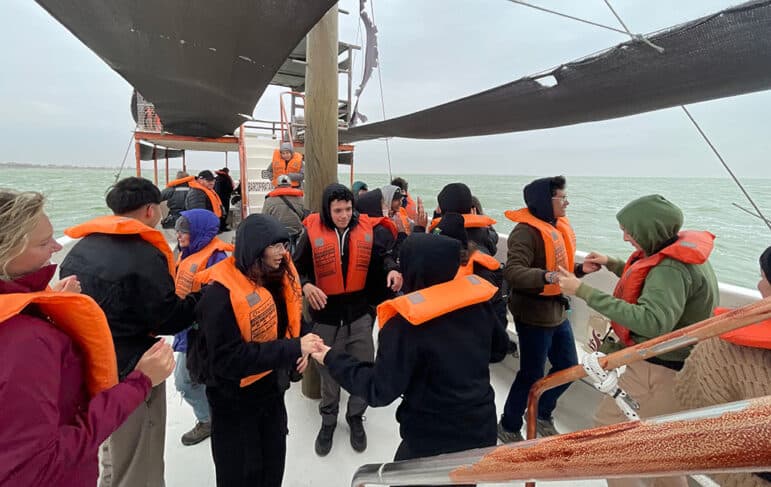
The week culminated in the Mono Lake students attending an environmental leaders’ forum with around 20 of the 260 students participating in the Experience Ambientalia program in Argentina. There, the Argentinian students shared the work they were doing and sought to collaborate with their peers from the United States on joint projects that could simultaneously benefit their lakes and communications across the hemisphere. Students were then tasked with creating threat maps that affect Wilson’s Phalaropes at their respective lakes and designing projects that could benefit the conservation of the species. After sharing their projects, the students’ final act together was to sign a symbolic ratification agreement to continue the tripartite connection of Laguna Mar Chiquita, Mono Lake, and Great Salt Lake.
Read the agreement here
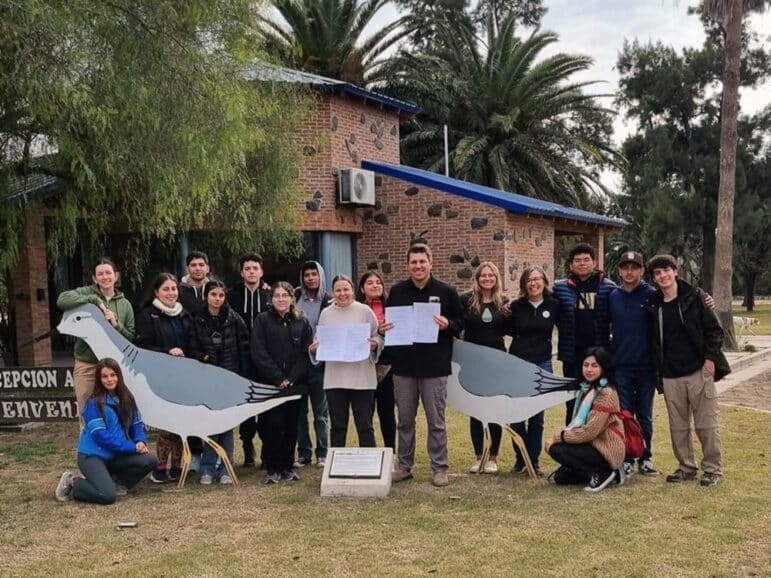
Before departing from their friends and sister lake, each student was given the chance to reflect on their time participating in the first iteration of this program. Read on for some reflections from the Lee Vining students about the Experience Ambientalia program:
Diego: “This program is called Experience Ambientalia and is mainly about getting youth involved in [solving] environmental problems in their communities.”
Heidi: “Learning about Mono Lake’s and Laguna Mar Chiquita’s history and its current and past problems has been a huge eye opener for me. We should be doing more and the first step in doing that is making a difference in the world.”
Yessi: “This program has taught me a lot about the place I live that I didn’t know about, and it has made me feel empowered about doing something about challenges that might seem too big. I’ve learned that I can do something to make a big problem better.”
Alden: “I have always been really passionate about the outdoors but our high school did not have an environmental club. So, I was really excited to join Experience Ambientalia. It is an international environmental youth leadership group. It has been a great way to further my passion and I didn’t realize how much more I would learn about my home from this experience.”
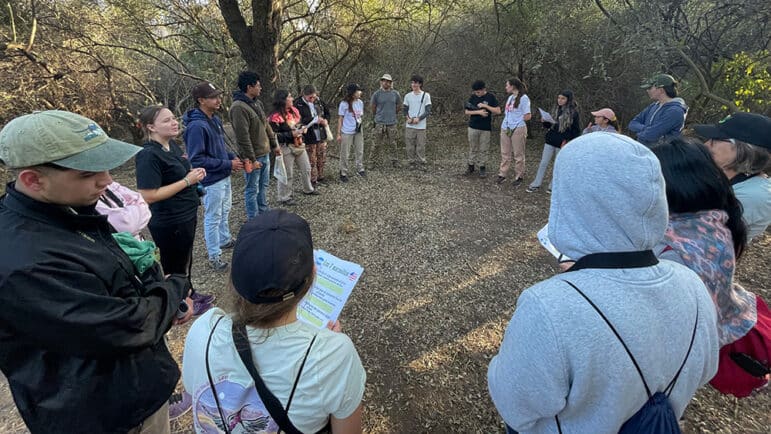
The students also shared their thoughts about the power of collective action, especially among young people:
Julian: “This program is not only about helping us become leaders and teach us how to save the wilderness around us, but it also encourages us to encourage other youth to tag along and create a bigger group.”
Yessi: “This program has connected us with many other people passionate about saline lakes. And especially youth, which is very important for our future.”
David: “It has been amazing to see how much youth are wanting to be involved in protecting their environment.”
Alden: “It has been amazing to meet so many young people who are passionate about the same things I am. And I have grown passionate about things I never thought I would be, like bird watching. I never thought I would be a bird nerd. But honestly, it’s so fun. And even though things are different here, it’s like the same. The communities [at both lakes] have been amazing and everyone has been super supportive.”
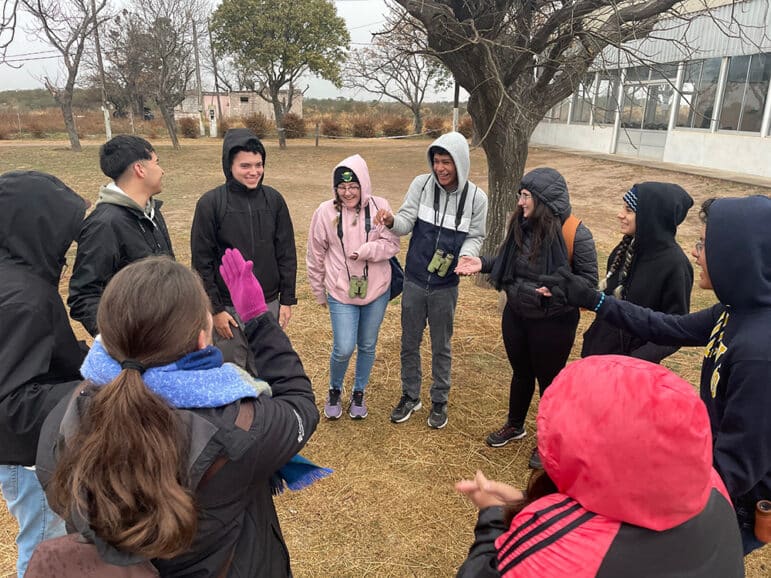
For students from both countries who live in small rural communities, Experience Ambientalia has expanded their horizons and given them bonds with friends across the hemisphere:
Heidi: “Sharing these experiences with new friends has created bonds I will never forget.”
Yessi: “Sometimes we need someone to believe in us so we can then believe in ourselves.”
Julian: “This program has made me come out of comfort zone, out of my shell. It has made me make new friends and strength bonds. And on a more personal level, seeing this all happen at the beginning with Marina and Ms. Taylor saying, ‘If this becomes a reality, you will be going to Argentina, which is thousands and thousands of miles away,’ it made be more aware and made me follow my dreams because it showed me that big dreams can happen if you work hard.”
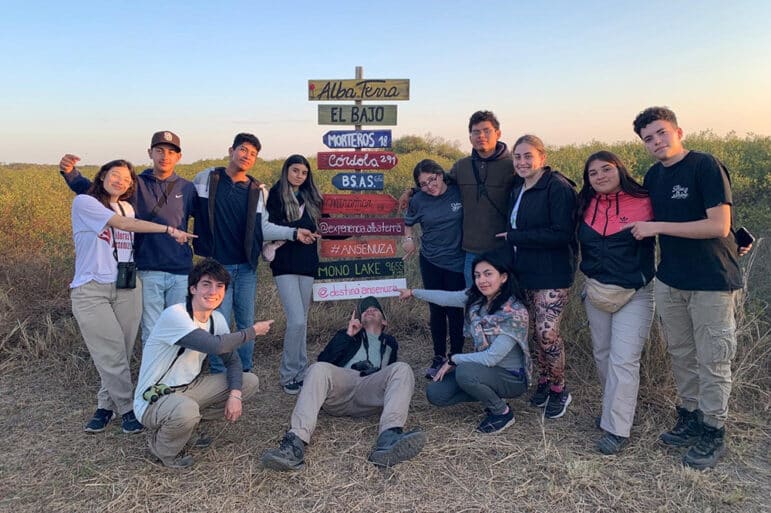
Traveling with the six students from Lee Vining were me, Ryan Garrett, Education Director at the Mono Lake Committee, Sarah Taylor, Lee Vining High School English teacher, and Katie Smith, who works at the Committee and Oikonos Ecosystem Knowledge, and volunteered her time to support the group.
Sarah reflected on the program’s impact: “This program has gotten my students to appreciate this beautiful lake around them. I have seen them really gain a relationship with Mono Lake. More students need to have experiences where they experience awe—the awe of the amazing world that we live in. Every one of my students has experienced awe on this trip and that is so wonderful. It is so beautiful to see that moment, and that is the kind of connection and experience that makes us want to work really hard to change the world.”
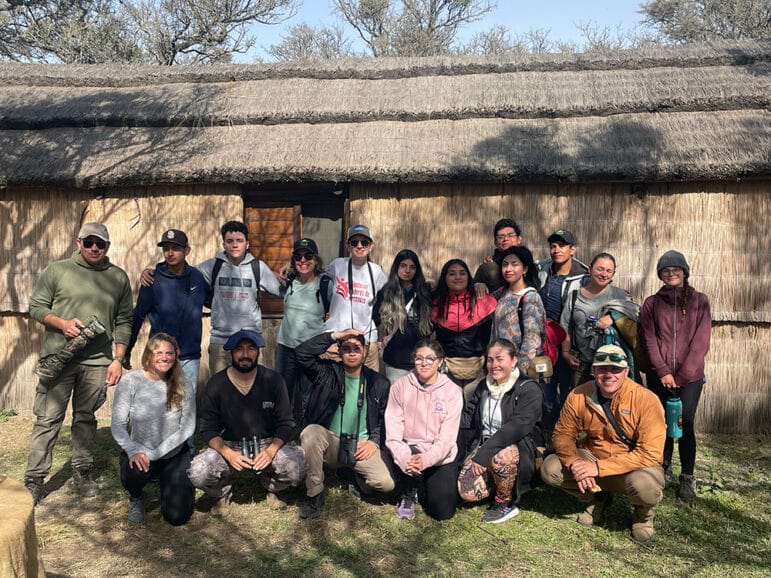
This exchange would not be possible without Mammoth Lakes Rotary, Bishop Sunrise Rotary, DeChambeau Creek Foundation, June Lake Women’s Club, Eastern Sierra Audubon Society, and Mono Lake Committee members supporting our students. And just as important, it would not be possible without Marina Castellino, co-director of Experience Ambientalia, and her amazing team at FLA. Their ability to host us was made possible by the United States Forest Service and Manomet Conservation Sciences.
The program will now go on a brief hiatus until September. The students and staff at the Mono Lake Committee will now begin developing more infrastructure and further design curriculum for the second iteration of Experience Ambientalia! If you are interested in supporting the program, you can do that by clicking below:
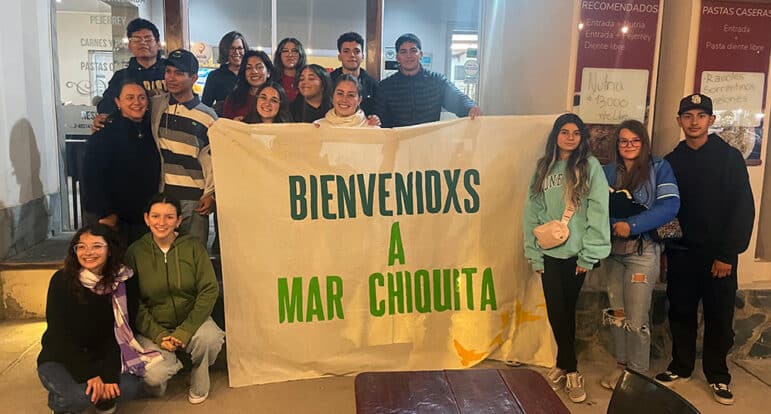
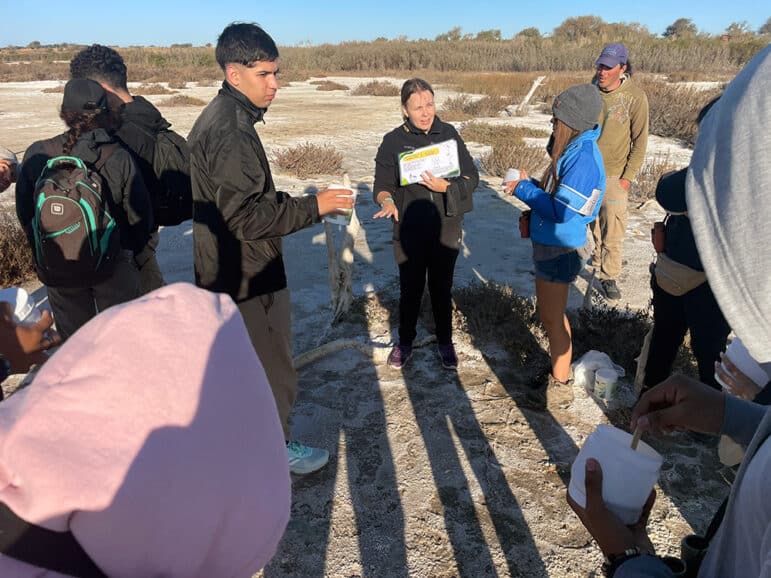
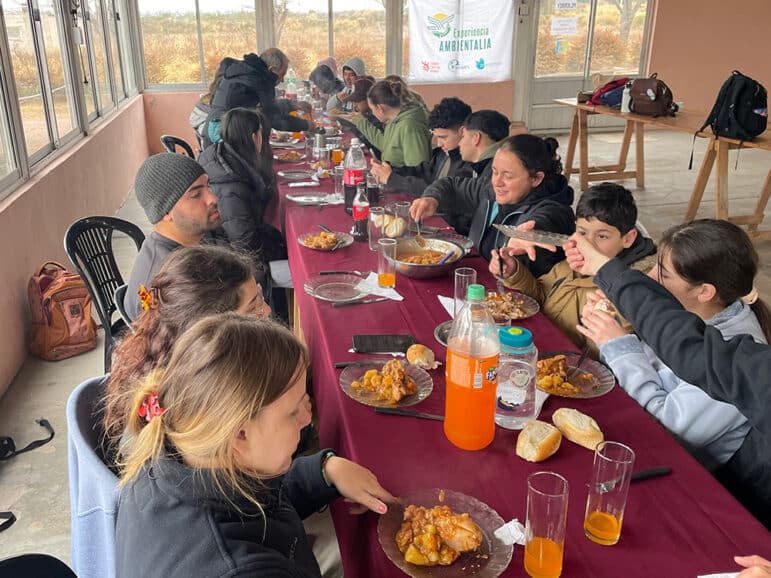
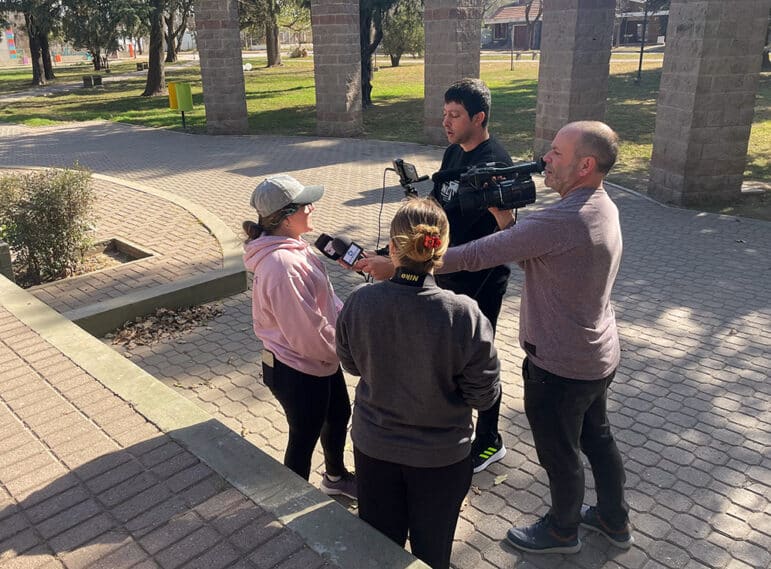
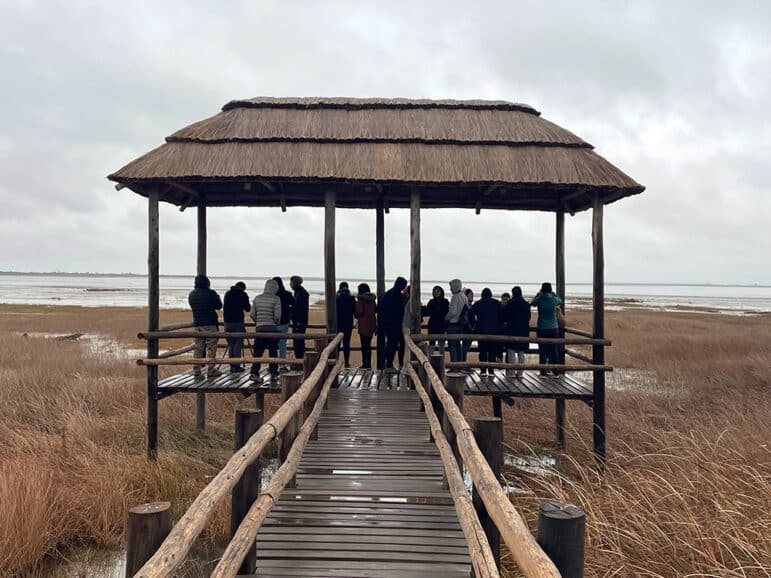
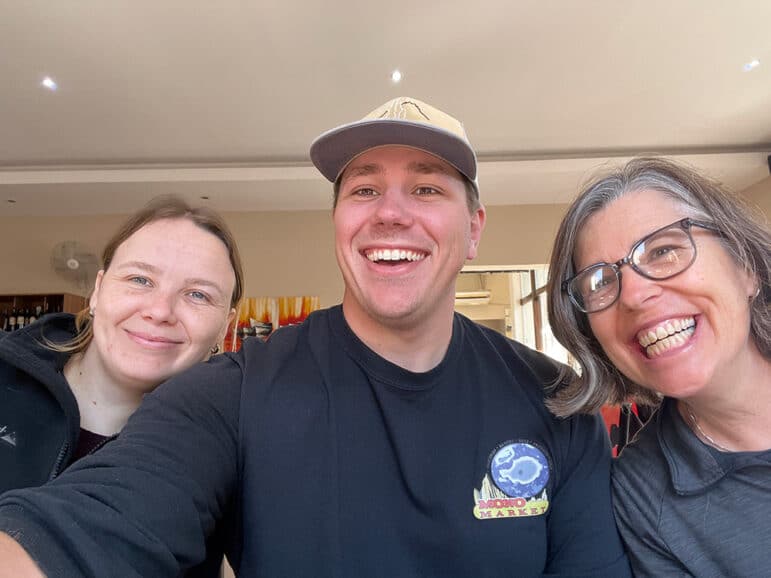
Experience Ambientalia seeks to better connect youth to their home ecosystems, introduce them to sister saline lakes across the Western Hemisphere, and practice environmental stewardship. Founded in 2021 in the Ansenuza region of the Córdoba province in Argentina, Experience Ambientalia was started by Fundación Líderes de Ansenuza and the Western Hemispheric Shorebird Reserve Network (WHSRN) to engage youth in the conservation of Laguna Mar Chiquita. Mono Lake is a sister lake with Laguna Mar Chiquita within WHSRN because of the lakes’ combined role in providing critical habitat for Wilson’s Phalaropes, a shorebird facing serious threats to its population due to the decline of healthy saline lakes globally.
Photos by Ryan Garrett, Marina Castellino, Flor Barbero, Katie Smith, and Sarah Taylor.
